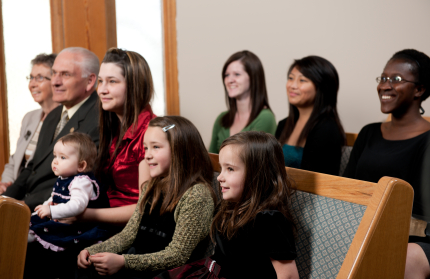I’ve found, however, that this awful statement makes for
great gospel opportunities. That is because not only can I correct the error,
but I can use it as a way to explain the magnificent truth of the gospel—that
in our time of worry and woe and when life is more than we can handle, God in Jesus
Christ is there to deliver us.
You see, that is what is exactly wrong with the sentiment
that I mentioned above. It cuts against the grain of the Gospel. First of all,
nowhere in Scripture is this idea intimated, much less stated. The closest you
come is 1 Cor. 10:13, “No temptation has overtaken you that is not common to
man. God is faithful, and he will not let you be tempted beyond your ability,
but with the temptation he will also provide the way of escape, that you may be
able to endure it.” (ESV) But that was said about temptation from sin not
trials in life. Further, the escape or deliverance is from God. And so the
truth rings out even more, we are inadequate in ourselves to overcome
temptations. We need to trust and rely upon God’s sufficiency and deliverance
for our escape.
And therein lies what is so wrong with saying “God doesn’t
put on you more than you can handle.” The Christian life, or just life in
general, is not a matter of self-effort or overcoming by the human will. The Gospel
teaches us that we do not come to salvation in our own self-effort. So what
makes us think that we can overcome the difficulties in life in our
self-effort? Does the Gospel only apply to the one and not the other?
Finally, this statement seems to fly in the face of so many
stories in Scripture where life completely crashed over saints like a Tsunami.
If we are honest, God, in his meticulous sovereignty over all things, ordains
all kinds of issues and events in our lives that we can neither control nor
handle. This is what it is to live in a fallen world. That’s right. God is to
blame for your ailments! And he ordained it just that way not so that you could
deliver yourself from an impossible situation, which by definition is
impossible. He ordained the impossible so that you would rely on the only one
who can do the impossible—Jesus!
So Christians, stop saying that God doesn’t put more on your
plate than you can manage, because it is false! Biblically, it is not in
Scripture. Theologically, it is not true of God. And worst of all, it is an
un-Gospel understanding of the Christian life. It is the anti-Gospel to facing
life’s obstacles.
Here is the good news. When we live out the Gospel, we apply
the work of Jesus on the cross and empty tomb to our impossible situation. In
other words, we exert the same faith/confidence in the cross’s sufficiency for
our salvation from sin as we do for the cross’s ability for deliverance from
life’s trials. We practice in our lives, “What is impossible with man is
possible with God.” What is more, the same faith that was graciously gifted to
us for conversion is the same faith that is gifted to us to sustain our hope in
Christ. So even your hurdling through life is a matter of God’s grace not your
effort. He gets all the glory, and you get joy-filling deliverance.


